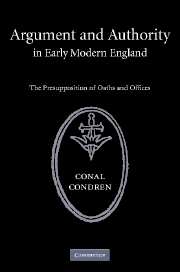Book contents
- Frontmatter
- Contents
- Preface
- Introduction
- Part I The liquid empire of office
- 1 An overview
- 2 Ceremonies of office: The kiss of the tutti-man
- 3 Institutionalised office: a sense of the scavenger
- 4 The vocabulary of office
- 5 Offices of the intellect: player, poet and philosopher
- 6 Soul and conscience
- Part II The authority and insolence of office
- Part III ‘I, A. B.’
- Epilogue
- Bibliography
- Index
3 - Institutionalised office: a sense of the scavenger
from Part I - The liquid empire of office
Published online by Cambridge University Press: 28 October 2009
- Frontmatter
- Contents
- Preface
- Introduction
- Part I The liquid empire of office
- 1 An overview
- 2 Ceremonies of office: The kiss of the tutti-man
- 3 Institutionalised office: a sense of the scavenger
- 4 The vocabulary of office
- 5 Offices of the intellect: player, poet and philosopher
- 6 Soul and conscience
- Part II The authority and insolence of office
- Part III ‘I, A. B.’
- Epilogue
- Bibliography
- Index
Summary
[An officer] is a person of double capacity public and private, and that may be one reason, why he is said to deal doubly with all men that have to do with him. He is but a pimp to his place.
(Samuel Butler, Characters 1667–9)As I have noted, a concept of political office is now being used to explain institutional change and state formation in early modern England (above, introduction). The purpose here is not to present an alternative theory. It is, rather, principally to outline the scope of institutionalised office to complement what I have said of the ceremonial. Together, these chapters provide a background to my discussion of the unexplored reach of the vocabulary of office. In outlining this background, however, I shall touch on specific offices such as citizenship and more general notions such as republicanism. This should help avoid the impression that I am positing a social, ceremonial reality on which sits some intellectual superstructure. More significantly, surveying social organisation will also require consideration of the separation, derived from modern theoretical modelling, of a private realm from the ‘public sphere’ of offices, strongly associated with an emerging state. Neither social organisation nor its language supports such conceptions.
Office was a matter of belonging, of formal relational identity through responsibility; it gave a voice in the commonwealth and it was hardly possible to sustain any other. No man, wrote Edmund de Bohun, is without office, no aspect of life without rule.
- Type
- Chapter
- Information
- Argument and Authority in Early Modern EnglandThe Presupposition of Oaths and Offices, pp. 54 - 79Publisher: Cambridge University PressPrint publication year: 2006

